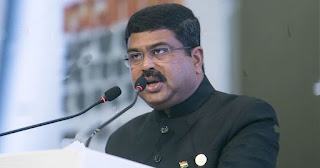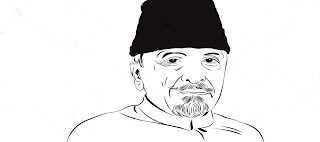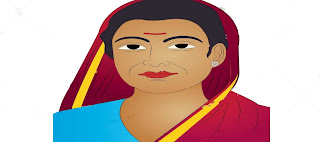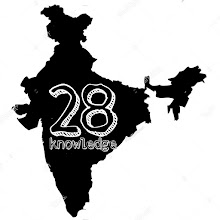Dharmendra Pradhan was appointed as the Education Minister of India in July 2021 following a cabinet reshuffle by Prime Minister Narendra Modi. Dharmendra Pradhan is currently the Education Minister of India. Prior to this role, Pradhan served as the Minister of Petroleum and Natural Gas and Minister of Skill Development and Entrepreneurship.
 |
| Education Minister of India |
| Ministry of Education | |
|---|---|
| Formed | 15 August 1947 |
| Jurisdiction | Government of India |
| Annual budget | ₹112,899 crore (US$14 billion) (2023-24) |
| Minister responsible | Dharmedra Pradhan |
| Address | 122-C, Shastri Bhawan New Delhi - 110001 |
| Phone No | 011-23383451 |
| Website | https://www.education.gov.in/en |
Who is the First Education Minister of India?
Who is the First Education Minister of India?
Maulana Abul Kalam Azad was the first Education Minister of India who served as the Education Minister from 1947 to 1958, and played a significant role in the development of education in India. Maulana Azad was a prominent leader of the Indian independence movement, and was also a scholar and writer. He was instrumental in the establishment of the University Grants Commission (UGC) and the Indian Institutes of Technology (IITs). He is also known for his contributions to the development of the education system in India, and for his emphasis on the importance of education for national development.
Who is the Mother of Education of India?
Who is the Mother of Education of India?
The mother of education in India is often attributed to be Savitribai Phule. She was a social reformer and educator who lived in the 19th century and worked towards promoting education for women and marginalized communities in India. Along with her husband, Jyotirao Phule, she established the first school for girls in Pune in 1848, which was a significant step towards providing education for girls in India. Savitribai Phule is also known for her contributions towards fighting against discrimination and oppression of women and lower-caste individuals in Indian society.
Which State is First in Education in India?
Which State is First in Education in India?
some states that are often considered to have strong education systems include Kerala, Tamil Nadu, Maharashtra, Karnataka, and Gujarat.
Kerala for example, is known for its high literacy rates and strong public education system, with a focus on providing education for all. Tamil Nadu is also recognized for its high literacy rates and well-developed school infrastructure, with a particular emphasis on science and technology education. Maharashtra is home to several top universities and institutes of higher education, while Karnataka is known for its engineering and technical education programs. Gujarat has also made significant strides in education in recent years, with an emphasis on providing quality education and improving access to education for all.
Which City is Best for Study in India?
Which City is Best for Study in India?
India has several cities that are well-known for their educational institutions, and the choice of the best city for studying largely depends on one's personal preferences and academic interests. Some of the top cities for studying in India are:
Bangalore: Known as the "Silicon Valley of India," Bangalore is home to some of the best engineering and technology colleges in the country.
Delhi: The national capital has some of the top-ranked universities and institutes for management, law, and social sciences.
Mumbai: Mumbai is a hub for business and finance education and has some of the top-ranked B-Schools in the country.
Chennai: Chennai is known for its prestigious institutes for engineering, management, and medical sciences.
Pune: Pune is a popular choice for students interested in pursuing management, engineering, and liberal arts programs.
Hyderabad: Hyderabad has some of the top-ranked universities and institutes for computer science, engineering, and management.
These are just a few examples, and there are many other cities in India with excellent educational institutions. It's important to research the programs, faculties, and infrastructure of each institution to determine the best fit for your academic goals and interests.
Which School is Top First in India?
Which School is Top First in India?
There are several schools in India that are considered top-ranked in terms of academics, faculty, infrastructure, and overall reputation. However, it's difficult to determine a single top-ranked school in India as it depends on various factors and personal preferences.
Some of the most reputed schools in India include:
The Doon School, (Dehradun)
Mayo College, (Ajmer)
Bishop Cotton School, (Shimla)
Welham Boys' School, (Dehradun)
La Martiniere for Boys, (Kolkata)
Scindia School, (Gwalior)
Cathedral and John Connon School, (Mumbai)
The Shri Ram School, (New Delhi)
Modern School, Barakhamba Road, (New Delhi)
Dhirubhai Ambani International School, (Mumbai)
However, it's important to note that the quality of education and reputation of a school is subjective and varies from person to person. It's recommended to do thorough research and consider multiple factors before making a decision on which school to attend or send your children to.
What is the Role of Ministry of Education?
What is the Role of Ministry of Education?
The Ministry of Education (formerly known as the Ministry of Human Resource Development) is responsible for the development of education in India. Its primary role is to formulate policies, plans, and programs for the development of education at all levels, including elementary, secondary, higher, technical, and adult education.
Some of the key responsibilities of the Ministry of Education are:
Formulating policies related to education in India.
Implementing educational programs and schemes.
Promoting research and development in education.
Providing financial support to educational institutions and students.
Developing and implementing education-related legislation.
Coordinating with state governments and other stakeholders for the development of education.
Ensuring access to education for all, including disadvantaged and marginalized groups.
Fostering international cooperation in the field of education.
The Ministry of Education plays a crucial role in shaping the education system in India and ensuring that it meets the needs of the country's diverse population.
List of Education Minister of India
List of Education Minister of India
| List of education minister of India | |||
|---|---|---|---|
| 1 | 15 August 1947 - 22 January 1958 | Maulana Abul Kalam Azad | 10 Years, 160 Days |
| 2 | 22 January 1958 - 31 August 1963 | K. L. Shrimali | 5 Years, 221 Days |
| 3 | 1 September 1963 - 21 November 1963 | Humayun Kabir | 81 Days |
| 4 | 21 November 1963 - 13 November 1966 | M. C. Chagla | 2 Years, 357 Days |
| 5 | 14 November 1966 - 13 March 1967 | Fakhruddin Ali Ahmed | 119 Days |
| 6 | 16 March 1967 - 14 February 1969 | Triguna Sen | 1 Year, 335 Days |
| 7 | 14 February 1969 - 18 March 1971 | V. K. R. V. Rao | 2 Years, 32 Days |
| 8 | 18 March 1971 - 20 March 1972 | Siddhartha Shankar Ray | 1 Year, 2 Days |
| 9 | 24 March 1972 - 24 March 1977 | S. Nurul Hasan | 5 Years |
| 10 | 26 March 1977 - 28 July 1979 | Pratap Chandra Chunder | 2 Years, 124 Days |
| 11 | 30 July 1979 - 14 January 1980 | Karan Singh | 168 Days |
| 12 | 14 January 1980 - 17 October 1980 | B. Shankaranand | 277 Days |
| 13 | 17 October 1980 - 8 August 1981 | Shankarrao Chavan | 295 Days |
| 14 | 10 August 1981 - 31 December 1984 | Sheila Kaul | 3 Years, 143 Days |
| 15 | 31 December 1984 - 25 September 1985 | K. C. Pant | 268 Days |
| 16 | 25 September 1985 - 25 June 1988 | P. V. Narasimha Rao | 2 Years, 274 Days |
| 17 | 25 June 1988 - 2 December 1989 | P. Shiv Shankar | 1 Year, 160 Days |
| 18 | 2 December 1989 - 10 November 1990 | V. P. Singh | 343 Days |
| 19 | 21 November 1990 - 21 June 1991 | Raj Mangal Pande | 212 Days |
| 20 | 23 June 1991 - 24 December 1994 | Arjun Singh | 3 Years, 184 Days |
| (16) | 25 December 1994 - 9 February 1995 | P. V. Narasimha Rao | 47 Days |
| 21 | 10 February 1995 - 17 January 1996 | Madhavrao Scindia | 341 Days |
| (16) | 17 January 1996 - 16 May 1996 | P. V. Narasimha Rao | 120 Days |
| 22 | 16 May 1996 - 1 June 1996 | Atal Bihari Vajpayee | 16 Days |
| 23 | 5 June 1996 - 19 March 1998 | S. R. Bommai | 1 Year 287 Days |
| 24 | 19 March 1998 - 22 May 2004 | Murli Manohar Joshi | 6 Years, 64 Days |
| 25 | 22 May 2004 - 22 May 2009 | Arjun Singh | 5 Years |
| 26 | 29 May 2009 - 29 October 2012 | Kapil Sibal | 3 Years 153 Days |
| 27 | 30 October 2012 - 26 May 2014 | M. M. Pallam Raju | 1 Year, 208 Days |
| 28 | 26 May 2014 - 5 July 2016 | Smriti Irani | 2 Year, 40 Days |
| 29 | 5 July 2016 - 30 May 2019 | Prakash Javadekar | 2 Years, 329 Days |
| 30 | 30 May 2019 - 7 July 2021 | Ramesh Pokhriyal | 2 Years, 38 Days |
| 31 | 7 July 2021 | Dharmendra Pradhan | |






